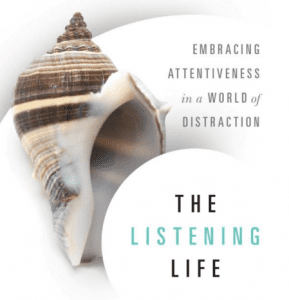 R. Michael Allen, Theological Commentary: Evangelical Perspectives (T&T Clark, 2011).
R. Michael Allen, Theological Commentary: Evangelical Perspectives (T&T Clark, 2011).
Review by Wes Vander Lugt
A common critique of theological interpretation of Scripture (TIS) is that it does not take the text of Scripture seriously. But then again, the whole point of TIS is to question assumptions regarding what it means to take Scripture seriously. Does it mean giving credence to historical-critical methods or setting them aside? Does it mean bracketing out theological commitments until the work of exegesis has been accomplished or bringing these commitments to the table from the beginning?
A discerning response will recognize the false dichotomies lurking in these questions. Taking Scripture seriously means doing careful exegesis in dynamic interplay with robust theological reflection. Whereas many biblical commentaries achieve the former to the neglect of the latter, TIS may be guilty at times of eclipsing exegesis with theology. Even the label “theological interpretation of Scripture” suggests a potential problem of interpretation taking precedence over textual observation. Using the label “theological commentary,” however, suggests a different method: theological reflection resulting from attention to and commentary on particular biblical texts.
In Theological Commentary: Evangelical Perspectives, editor Michael Allen explains that the contributors were given only a few parameters: exhibit careful exegesis, engage with other canonical texts, and then address the history of interpretation and dogmatic implications. The other feature holding these essays together is the evangelical authors, “most of whom live and have their being within some Reformed community.” Besides Allen himself, these contributors include Ryan Peterson, Kelly Kapic, Daniel Treier, Kevin Vanhoozer, Scott Swain, Henri Blocher, Michael Horton, and Andrew McGowan. In addition, the volume ends with two essays assessing the challenges and possibilities of theological commentary of the Old Testament (Walter Moberly) and the New Testament (D. A. Carson).
As a whole, do these essays succeed in offering fruitful theological commentary and faithful theological commentary? Overall, my impression is that these essays do succeed in large measure, much better, in fact, than many examples available so far in the Brazos Theological Commentaries. A few examples will have to suffice to demonstrate this judgment.
First, by drawing on an impressive variety of theologians from the early church to the Reformation, Kelly Kapic demonstrates how David’s lament in Psalm 22 becomes the cry of Jesus and then the cry of the church. As such, Kapic demonstrates, in keeping with one stream in the history of interpretation, that we can take the literary-historical context of the Psalm seriously while understanding the ways in which this Psalm is appropriated and transformed by the suffering Messiah who not only quotes Psalm 22, but actually lives it
Second, Kevin Vanhoozer addresses a difficult passage in Ezekial 14:9 when God declares that he will deceive the prophet. Does this mean, asks Vanhoozer, that Yahweh is a deceitful God who cannot be trusted? Before launching into theological exploration of divine trustworthiness and human responsibility, however, Vanhoozer attends carefully to the context of Ezekiel 14 and the particular form of the Hebrew word (pth in the Piel). In connection with similar uses throughout the canon, this leads Vanhoozer to assess appropriately the linguistic nuances of the term within its covenantal context. With exemplary precision and creative clarity, his conclusion weaves together an understanding of God’s action as “communicative wrath” toward those who have forfeited their right to truth, which is thus a “fitting form” of divine righteousness.
Third, Scott Swain explores Mark 12:35-37 to observe if the divinity of Jesus and trinitarian christology arise out of sound exegesis. In doing so, Swain is committed to attending to the specific words and the way they communicate while also attending to the Word as encountered in Scripture. Any commentary on the text of Scripture, therefore, is not just a mere literary-historical exercise, but a “living conversation between an eloquent Lord and his attentive servants.” Rather than ignoring the textual details in favor of enjoying this conversation, however, Swain labors to show that trinitarian christology does justice to the text, which leads us to see Jesus the Son and God the Father as “two dramatis personae who share one divine life, power, and glory.” Swain only deals with the role of the Spirit briefly in a footnote, but maintains that Mark’s portrait of the Spirit in other passages confirms a fully trinitarian christology.
In these three examples, it is evident that the authors of these essays are concerned to demonstrate the best kind of theological commentary, fusing exegesis and theological reflection. They may not be doing anything radically new, as Carson reminds us in his closing essay, but the benefit of doing theological commentary in the wake of biblical criticism is the mountain of scholarship is available to enrich our theological engagement with the text. Some parts of that mountain are richer in resources than others, but there are some diamonds to be found with a little digging. Although these essays are better than some examples of TIS, in my opinion there is still space for more engagement with critical scholarship, while not pitting this against the pre-critical interpretation that TIS appreciates and is attempting to revive. Overall, it is an enormously encouraging sign to see so many theologians demonstrating serious and skillful engagement with Scripture, and this book has shown that biblical studies and systematic theology do not have to be bickering neighbors in the community of Christian scholarship. Hopefully this is sign that we will see them living together under one roof—and together in the pages of one book—more frequently, complementing each other and working together toward the goal of knowing and communing with the triune God.











